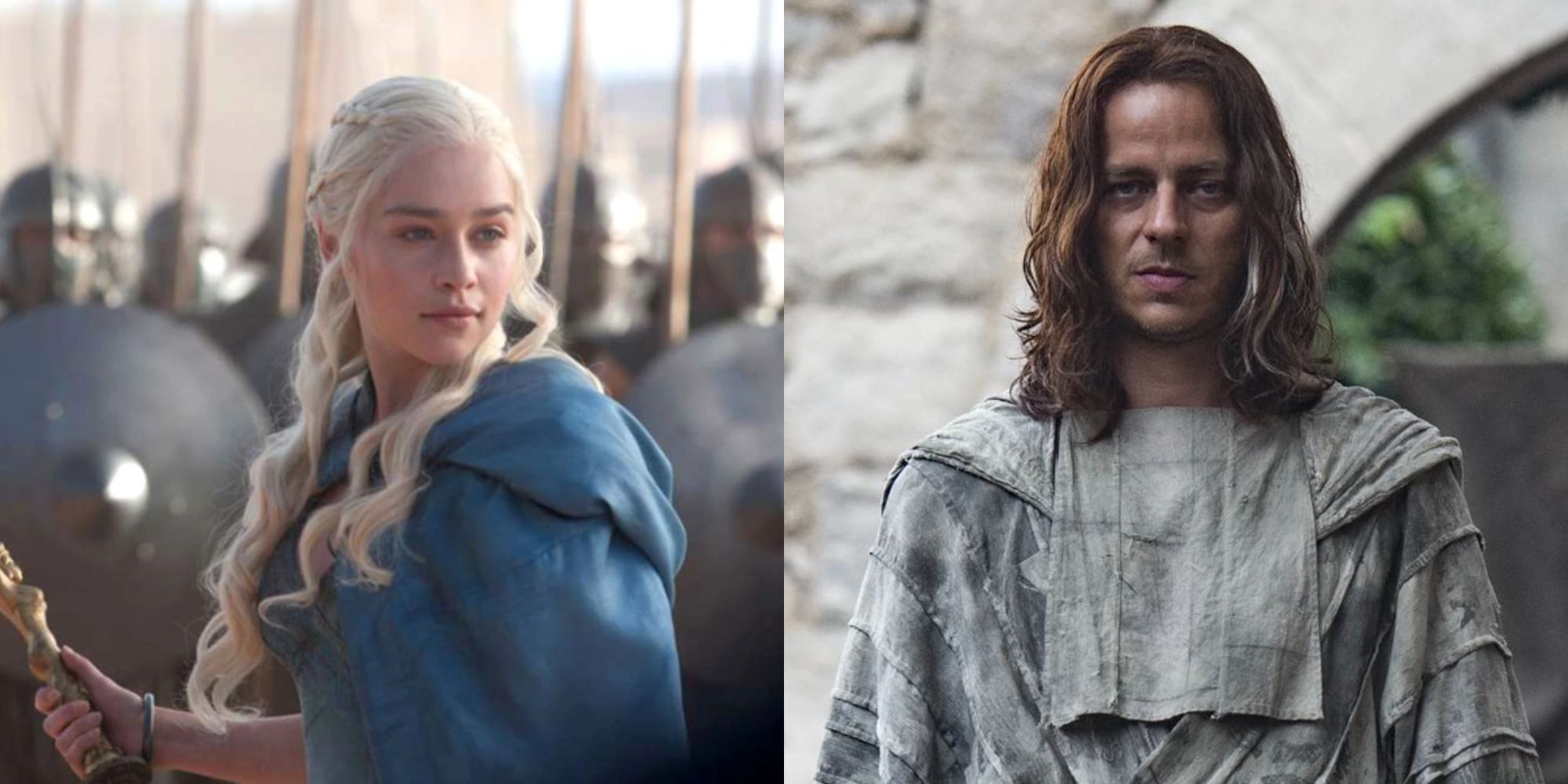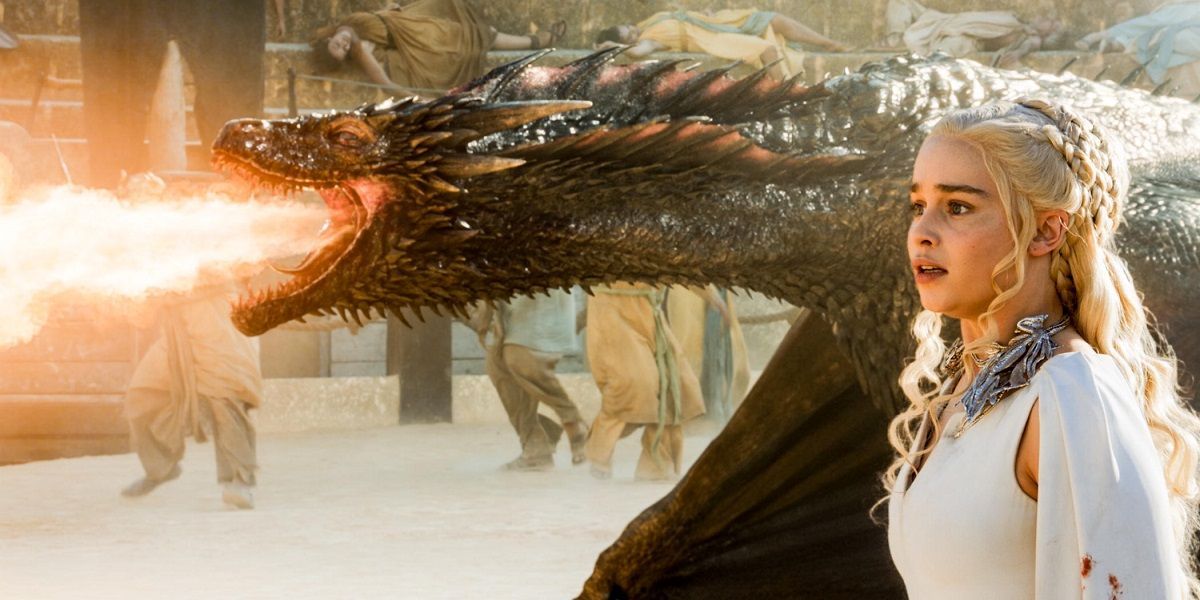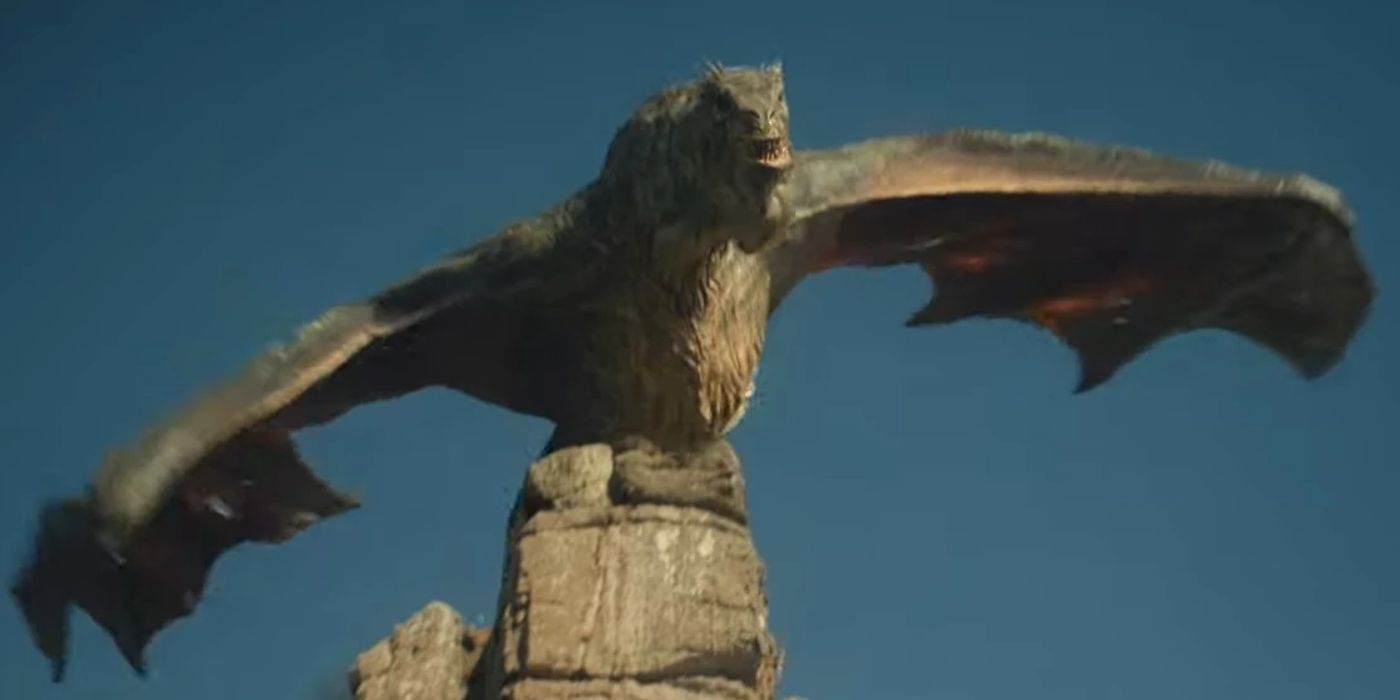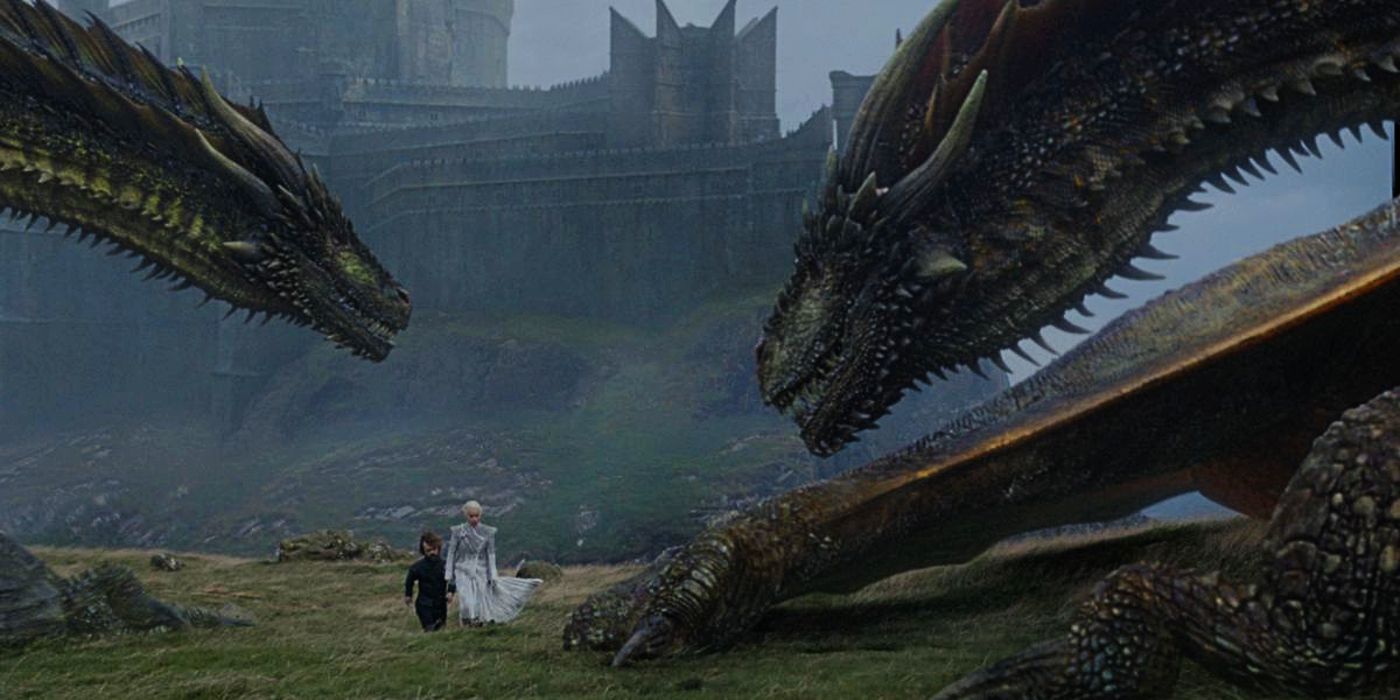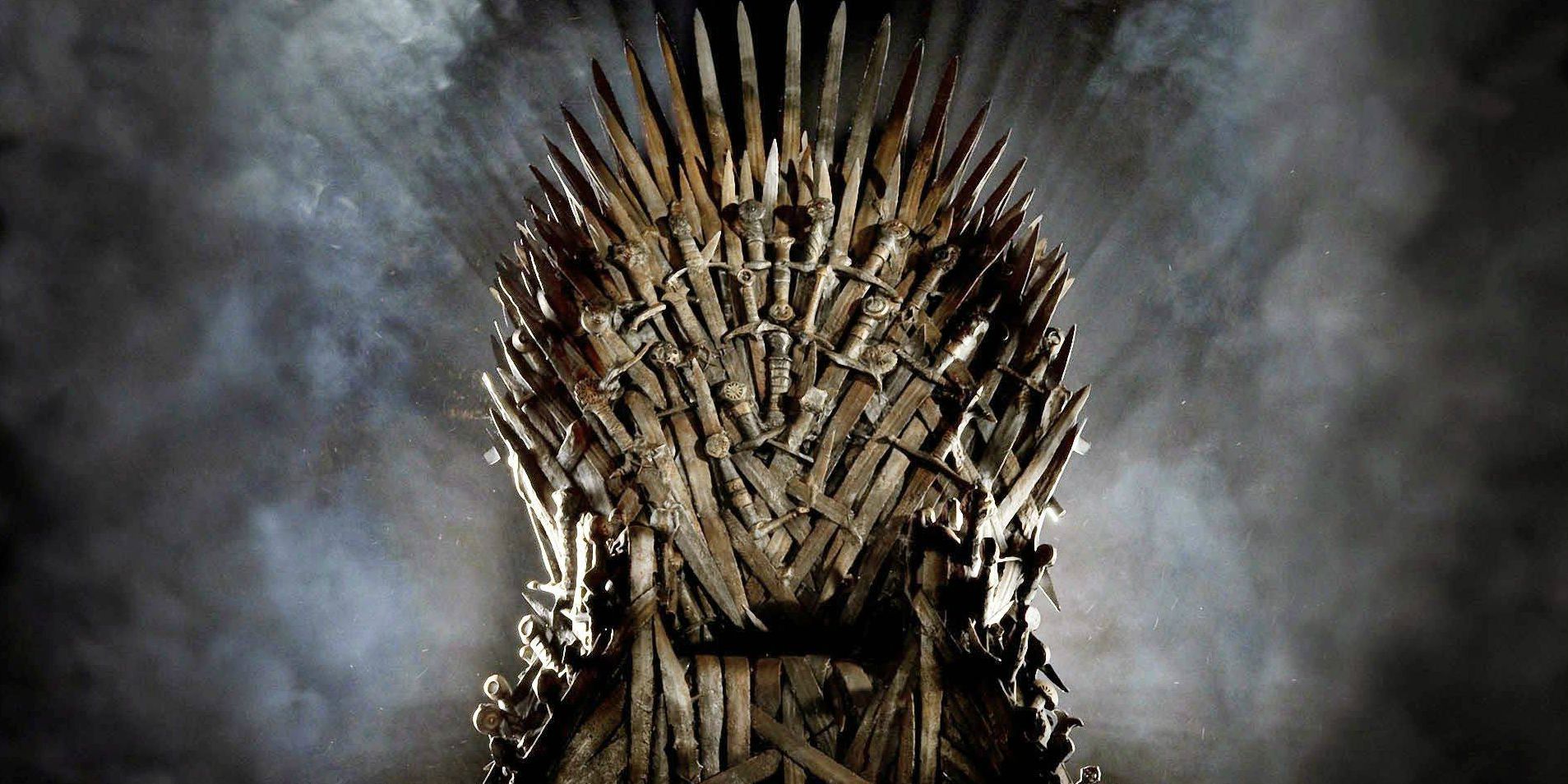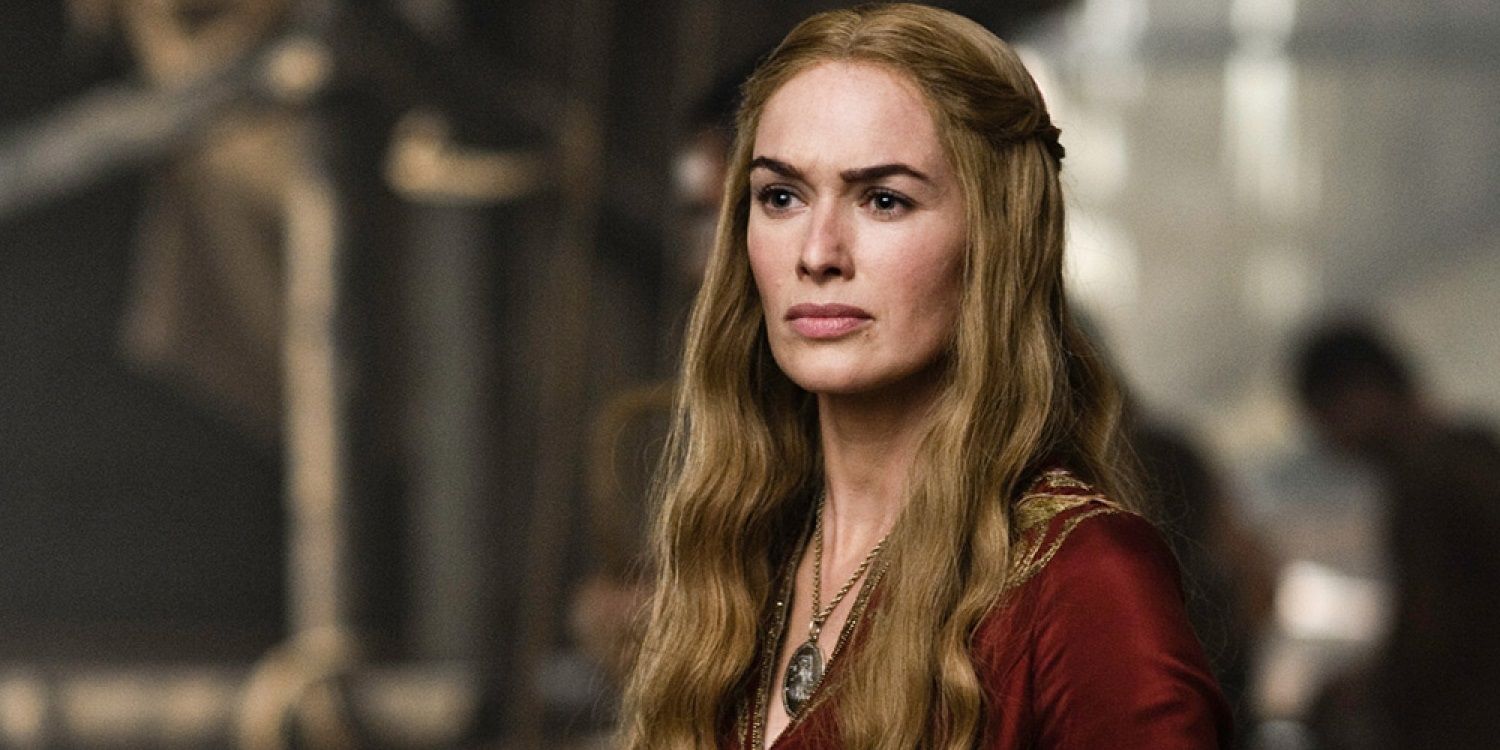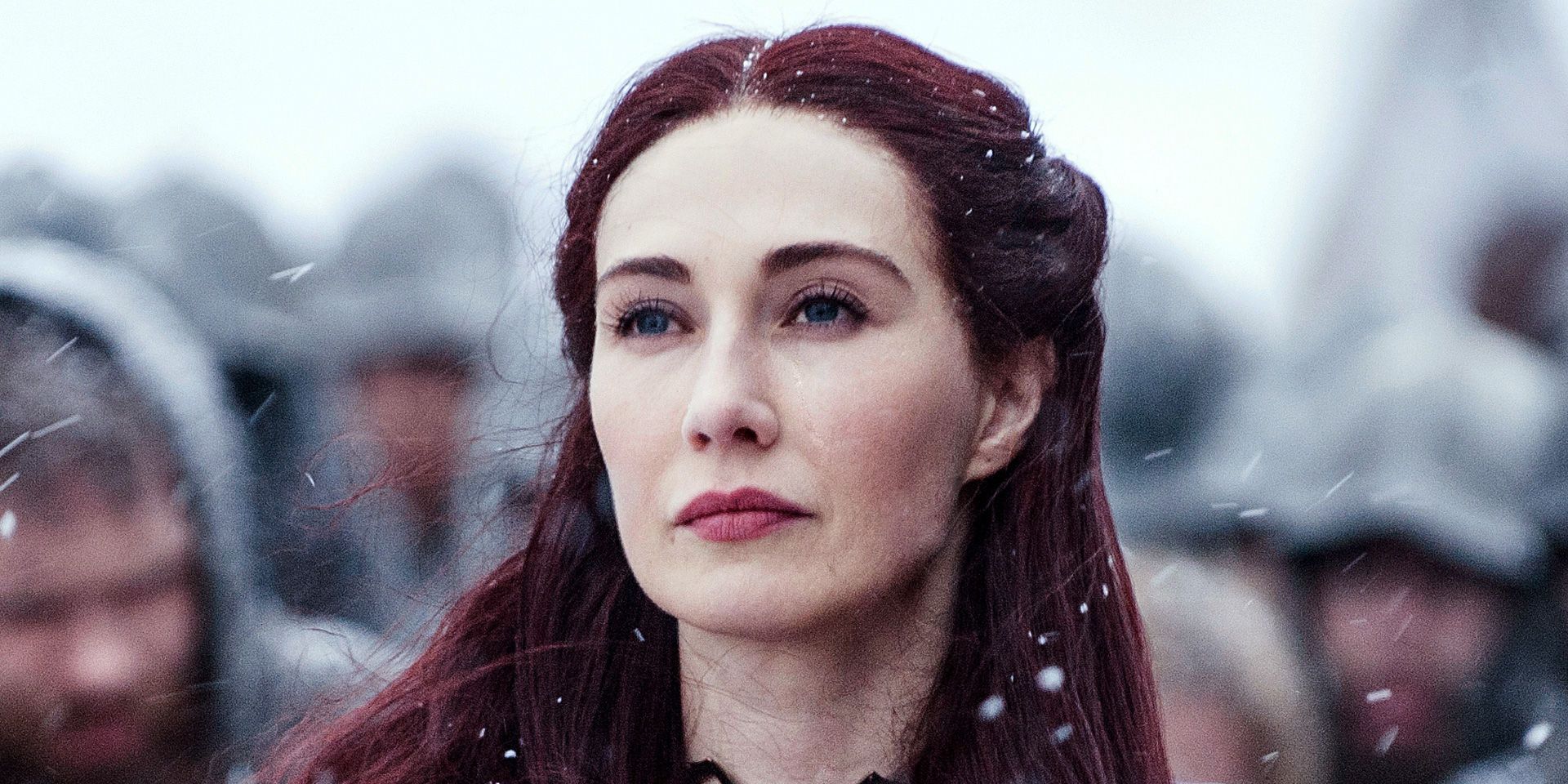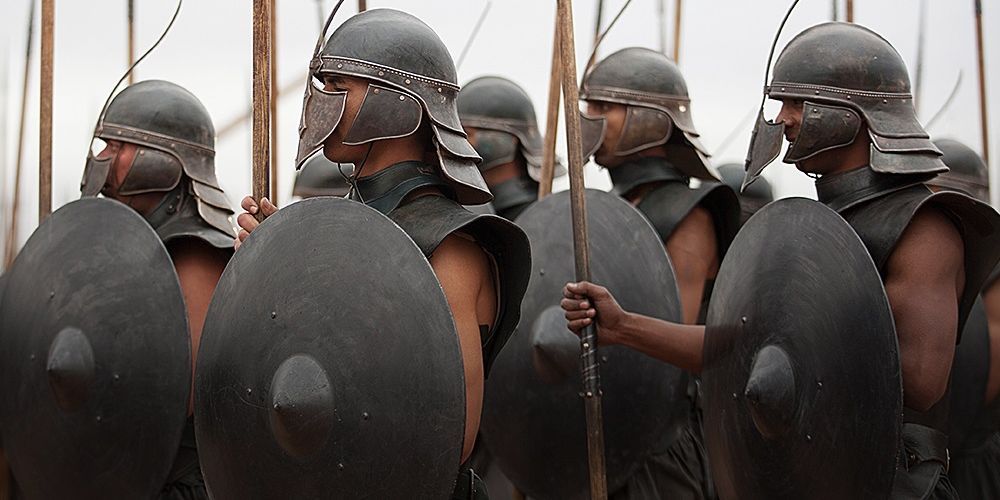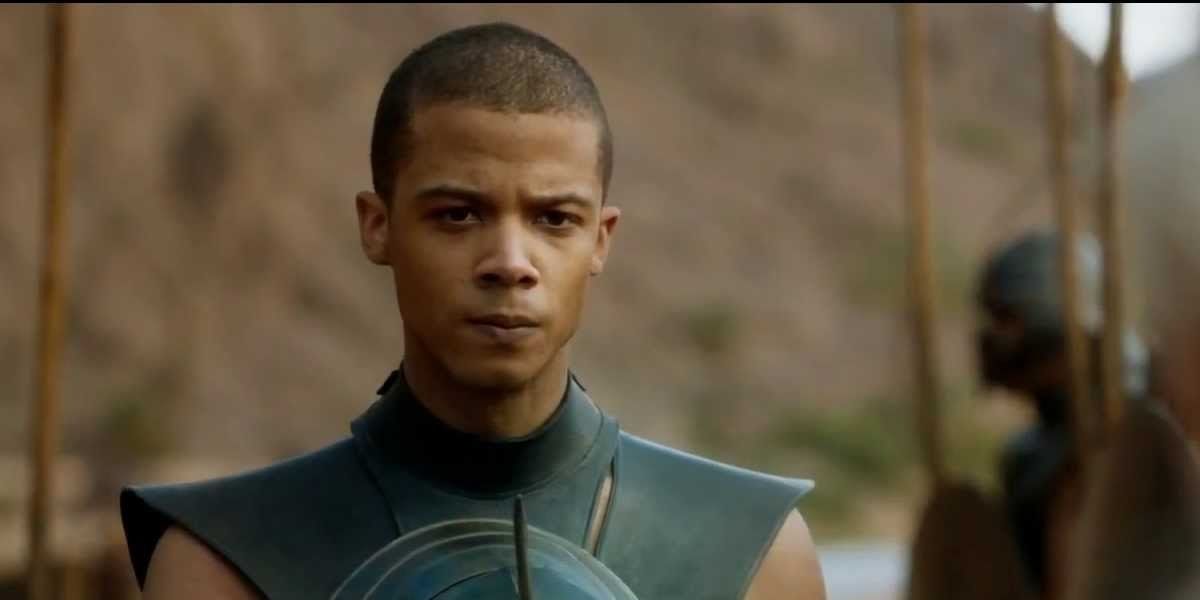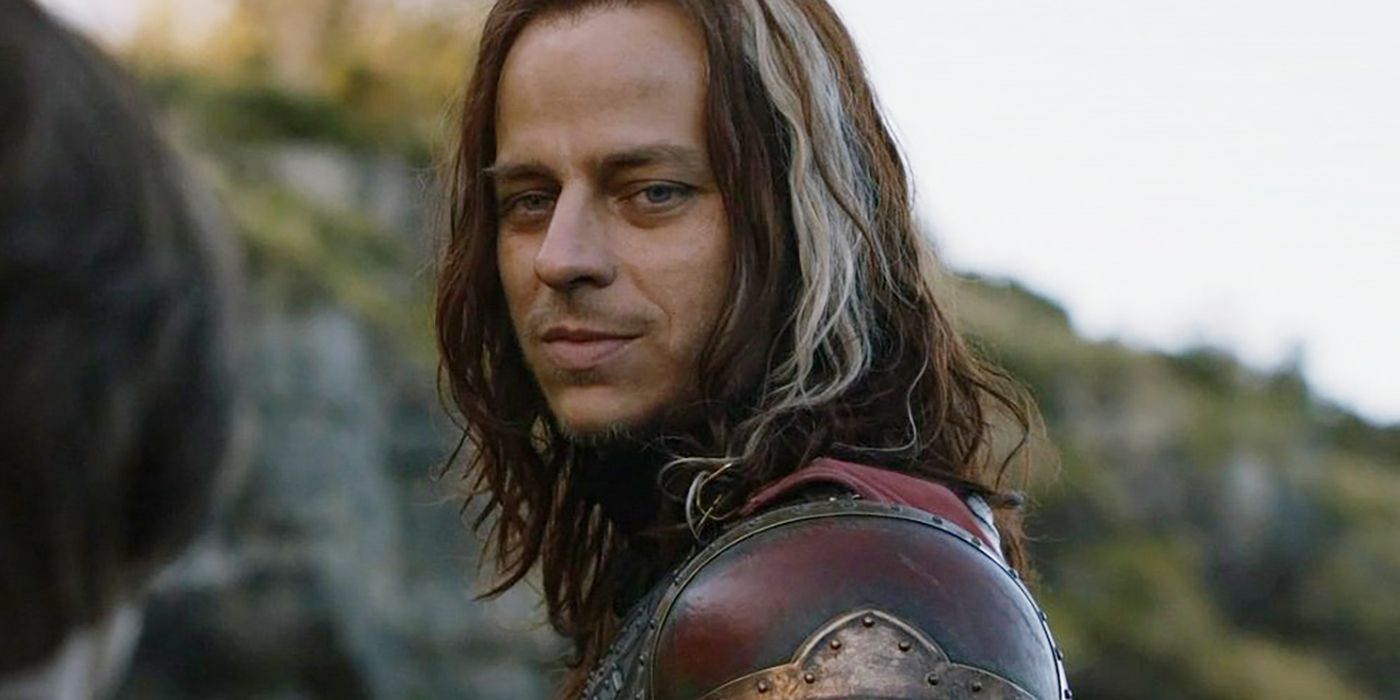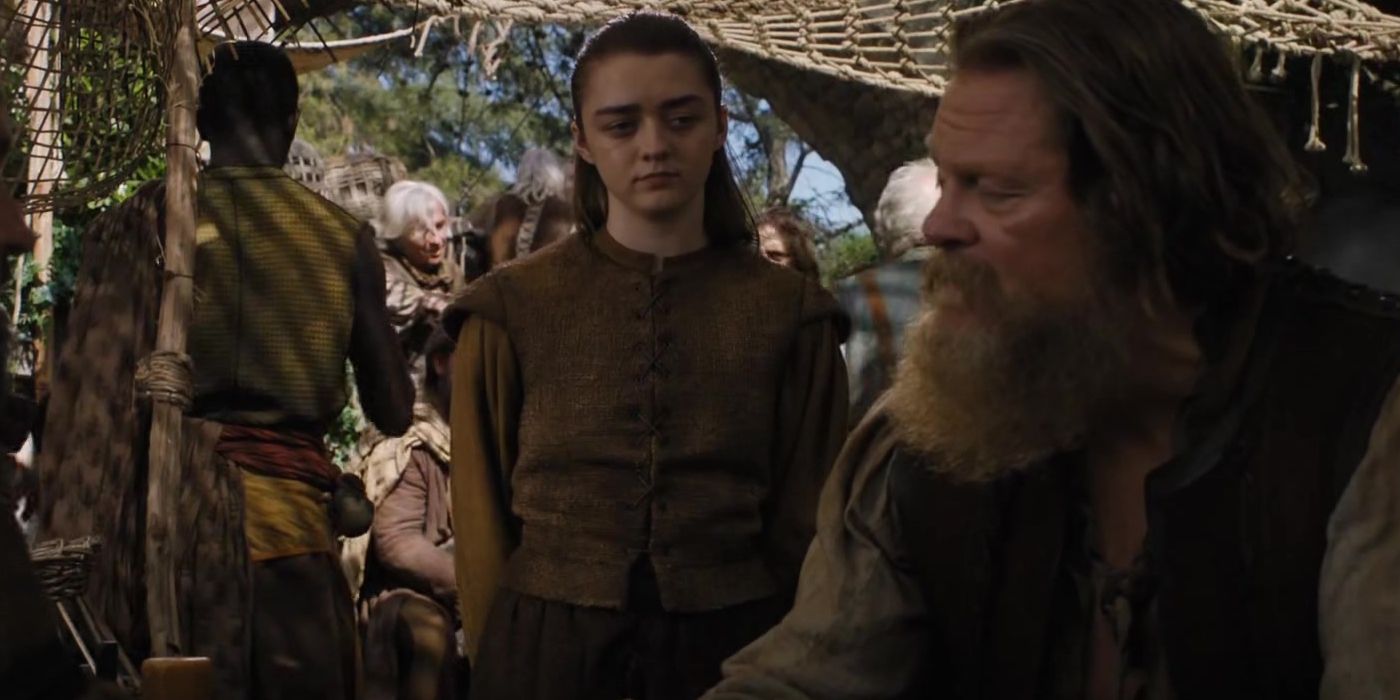Valyrian was the language of Old Valyria. Although the Freehold is long gone by the start of both House of the Dragon and Game of Thrones, it's still prominent, particularly among the Targaryen's. Daemon and Rhaenyra speak in High Valyrian between them, and Daenerys uses it during her time in Essos.
Although the language is hard to master, some words are so crucial throughout the shows that it's hard for viewers not to learn them. They might not have an extensive vocabulary, but hardcore fans of the franchise will surely know these words and phrases and their meaning.
Dracarys
Arguably the most famous Valyrian word, "Dracarys" is what Dragonlords say to command their dragons to shoot fire. It literally means "Dragonfire," although many people could easily confuse it more a straightforward command like "fire."
Although made famous by the one and only Daenerys Targaryen, many Targaryen's have said the word in House of the Dragon. Plus, considering season 2 of the show will focus on the actual Dance of the Dragons, fans can expect to hear this particular word multiple times under different contexts.
Zaldrizes
Dragons are crucial to the Game of Thrones and House of the Dragon lore. These mighty beasts are the power behind House Targaryen and why the Lords of Westeros bent the knee. Dragons are dangerous, savage, and majestic creatures that once thrived on the Valyrian Freehold before the Doom drove them to near-extinction.
The Valyrian word for dragon is "zaldrizes;" its plural form is "zaldrīzoti." It might be hard to catch it mid-conversation, especially because Valyrian is a fast language with many guttural sounds. However, fans should pay attention to the dialog in House of the Dragon, and they will surely hear the word uttered by one or more characters.
Muña Zaldrīzoti
Daenerys Stormborn of the House Targaryen was known for her many titles: first of her name, rightful Queen of the Andals and the First Men, Khaleesi of the Great Grass See, the Unburnt, and the Breaker of Chains. However, no title was more closely associated with her than Mother of Dragons.
Indeed, Daenerys' bond with her dragons was among the strongest in Game of Thrones, and she often refers to them as her "children." The Valyrian expression for Mother of Dragons is "Muña Zaldrīzoti" and can often be heard whenever Missandei introduces Dany to Valyrian-speaking emissaries from Salver's Bay.
Dēmalion Āegenko
The Iron Throne is the most coveted seat in Westeros. Described as "ugly" and "dangerous," the Iron Throne is made of the blades of Aegon, the Conqueror's fallen enemies. The books and show hint that it has some degree of magic within that allows it to "judge" those sitting on it.
"Dēmalion Āegenko" is the Valyrian expression for Iron Throne. Dany makes some references to it during her numerous speeches throughout the show, including her last one addressing her armies at the burned-down King's Landing. The expression will surely pop again in House of the Dragon.
Valonqar
Cersei Lannister is one of the best characters in Game of Thrones. Selfish and short-sighted, many of Cersei's actions come from a place of deep and seemingly unexplained hatred for her younger brother, Tyrion. However, Cersei's animosity to her brother is due to the words Maggy, the frog, once spoke to her.
The witch told Cersei that "the valonqar shall wrap his hands around your pale white throat and choke the life from you." "Valonqar" is the High Valyrian word for "little brother;" thus, Cersei has always believed Tyrion would kill her someday. The Valonqar prophecy is among the most important in Game of Thrones, explaining most of Cersei's fears and actions throughout the plot.
Darilaros
Prophecy is tricky in the World of Ice and Fire. Tyrion compares it to "a half-trained mule" upon which they can never fully rely. Still, it plays a crucial role in the story of the books, if not the show. Among the most meaningful is the one about the Prince Who Was Promised,
Melissandre mentions it numerous times to numerous characters, using the Valyrian word "darilaros," which translates to "prince." However, Missandei reveals that "darilaros," like other Valyrian words, is gender-neutral, meaning the prophecy is either "the Prince or Princess Who Was Promised."
Dovaogēdi
The Unsullied are an army of eunuchs that Daenerys buys from the Good Masters of Astapor. She then liberates them and commands them to slay every master before sacking the city with her dragon. The Unsullied remain by her side as her most trusted army, with each of them swearing unwavering loyalty to her cause.
The Valyrian word for Unsullied is "Dovaogēdi." Fans listen to it numerous times, especially because every command Daenerys gives them is in Valyrian. Few Unsullied speak the common tongue, and only Grey Worm does it fluently; thus, Dany addresses them exclusively in Valyrian.
Torgo Nudho
Grey Worm is far from one of Game of Thrones' most wholesome characters however, there is an innocence to him that made him a fan favorite. Like his fellow Unsullied, Grey Worm had a traumatic childhood and only knew freedom after Daenerys liberated him, explaining his undying devotion to her.
"Torgo Nudho" is Valyrian for Grey Worm, and many characters refer to him as such throughout the show. Missandei is the character who most often refers to him as "Torgo Nudho," although Dany and Jorah also do it from time to time, especially when they try to convey more formality or acknowledge his value as a warrior and commander.
Valar Morghulis
In the Free City of Braavos, people often say "Valar Morghulis," a phrase with different connotations. Its literal translation is "All men must die" and is most commonly used as a greeting or a way to show someone's respect for another.
"Valar Morghulis" is a way for the people in Essos to recognize the finality and inevitability of death. The World of Ice and Fire is brutal, and death is always around the corner -- indeed, fans will remember Game of Thrones' multiple sad character deaths. Realizing that death is always around and acknowledging it's the final destination for everyone, rich or poor, good or evil, evens the playfield and allows people to feel a sense of control over their harrowing lives.
Valar Dohaeris
The counterpart to "Valar Morghulis" is "Valar Dohaeris." It means "all men must serve" and is most common in the Free Cities, especially Braavos.
Within the context of the Many-Faced God and the House of Black and White, "Valar Dohaeris" is a way of confirming men's commitment to the Gods and a way to acknowledge that "only death can pay for life." It also reinforces the belief that every man and woman is alive to fulfill a purpose, and their life should amount to something; yes, all men must die but must first serve.

